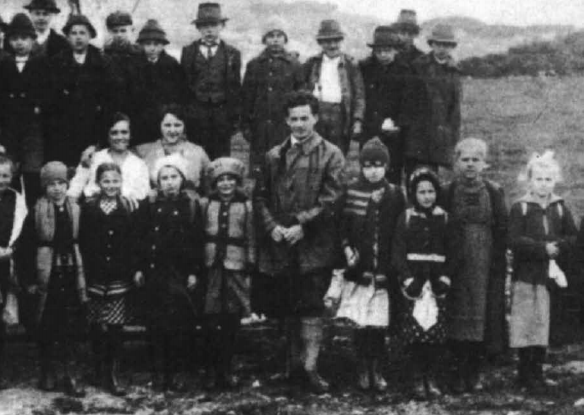What is the meaning of life? This may sound simplistic or naïve, especially in relation to much contemporary philosophy, which assumes the question is incoherent and reserves its focus for smaller and smaller slices of experience. And, of course, prior to the rise of secular modernity, the question was answered for us—and still is for a great many people—by religion. One either believed the answer, through coercion or otherwise, or kept quiet about it. But at least since Søren Kierkegaard, philosophers in the West have taken the question very seriously, and found all of the answers wanting. By the mid-twentieth century, there seemed to thinkers like Albert Camus to be no answer. Life has no meaning. It is inherently absurd and purposeless.
This Camus concluded in challenging essays like “The Myth of Sisyphus” and novels like L’Etranger, a book most of us know as The Stranger but which Alain de Botton, in his School of Life video above on Camus’ philosophy, translates as The Outsider. Reading this book, de Botton observes, “has long been an adolescent rite of passage” since many of its themes “are first tackled at seventeen or so.” Its protagonist, Meursault, an older, more nihilistic version of Holden Caulfield, illustrates Camus’ thesis through his steadfast refusal to identify with any meaning-making institutions or emotions, and through a casual, senseless murder. But while Meursault may see through the pretensions of his society, he has failed to see the world as it is.
Colin Wilson, another author many people read during intellectually formative years—who wrote an existentialist study also called The Outsider—describes Meursault’s indifference to life as a product of “his sense of unreality.” Only the looming prospect of death awakens him from what Meursault calls “a heavy grime of unreality.” Instead of despairing at life’s emptiness, Camus determined that true freedom required engaging fully with life, in the face of futility—with the ultimate prospect of death and the option of suicide always in view. Camus, says de Botton, “writes with exceptional intensity… as a guide for the reasons to live.” De Botton somewhat superficially praises Camus’ sexual prowess, fashion sense, and good looks as more than just “stylistic quirks,” but as markers of his psychological health.
But more than just a ladies man, Camus was a “great champion of the ordinary,” as well as a champion footballer and Nobel prize-winning literary star. He was also a fully committed journalist and political activist for much of his career, who stood by his individual principles even as other leftist intellectuals got swept up in the allure of Soviet communism under Stalin. In the documentary above, we learn important details of many of these qualities, as well of Camus’ troubled early life. Given his background of impoverishment and loss, it is indeed remarkable that Camus—much more so than other, more privileged philosophers—lived such a rich, fully engaged life.
In a rare television interview above, Camus answers questions about his theatrical adaptation of Dostoevsky’s The Possessed, another novel that confronts head on the question of life’s meaning. He speaks of the novel’s “nihilism,” now “the reality that we have to face.” Camus does not mention that Dostoyevsky, like the existentialist Kierkegaard, managed to salvage a kind of religious faith in the face of emptiness; the French philosopher and writer was convinced of the impossibility of such a thing. But whether one draws Dostoevsky or Camus’ conclusions, both would suggest that to live authentically, one must seriously grapple with the problem of meaninglessness and the reality of death.
Related Content:
Hear Albert Camus Deliver His Nobel Prize Acceptance Speech (1957)
Existential Philosophy of Kierkegaard, Sartre, Camus Explained with 8‑Bit Video Games
Josh Jones is a writer and musician based in Durham, NC. Follow him at @jdmagness


